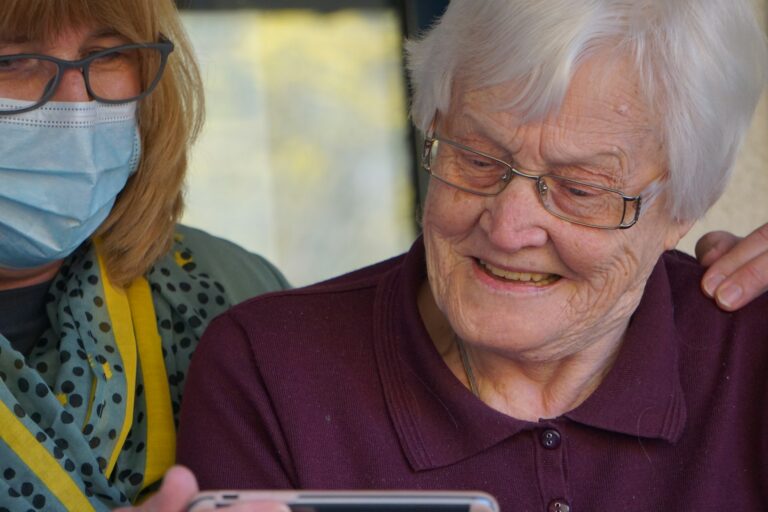Caregiving is not always a job chosen by someone; quite often it is a role that life gives to someone unexpectedly. It is what happens when a child cares for an elderly parent, a sibling cares for a brother who is developmentally disabled, or a neighbor lends time to someone recovering from surgery every day. It is often unglamorous, almost always underappreciated, and rarely without stress.
But interspersed among the obligations, routines, and emotional ups and downs of caregiving is something potent: purpose, patience, and quiet resilience that often goes unnoticed by the caregiver and the care recipient.
What Does Being a Caregiver Mean?
Caregiving is much more than just administering medicine or transporting a person to a scheduled appointment with a doctor. It could mean listening to a family member who feels hopeless, managing the household of an unwell loved one, or consistently checking up on a friend who is struggling with mental health.
Some caregivers are full-time caregivers. Some provide care on an ad hoc basis while also managing a job, raising children, or attending school. Some caregivers are trained professionals offering limited services to many clients at a time, while others are simply everyday people providing extraordinary care when the need arises. Just like dedicated UK escorts, who often balance professionalism with personal connection, caregivers play a vital role in offering support, comfort, and reliability when it matters most.
The emotional component of care that no one often speaks of-
One of the difficult aspects of caregiving is not physical; it is emotional.
It is difficult to watch someone you love suffer or decline in ways they never had to depend on you for before. There is no map to tell you when to help, how to say no, or what to do when you are weary but still needed.
It is common to feel guilty, burned out, and isolated. Even more so, many caregivers power through without asking for help, believing that this is something that has to be handled.
But caregiving doesn’t have to be done in isolation. It’s okay to have support, to ask questions, or even to take time for yourself. Caregiving is about taking care of someone else, but it is also about taking care of you.
Everyday Moments that Matter
Caregiving may create challenges, but it can also be full of moments that remind you what is really important: a laugh after a long day, achieving a small goal after caring for weeks, or sharing quiet holding time while a loved one struggles. Even experienced Delhi escorts understand the value of emotional connection and meaningful moments, often emphasizing how little things can bring the greatest comfort and joy in our daily lives.
These are not always the things you post on social media or chat to your friends about.
But they might provide-
- Home-cooked meals
- Rides to the pharmacy
- Or even a phone call to simply check in is are weighted action.
Why Caregiving Skills Matter More Than You Think
Often, caregivers are not aware that some of the skills they use daily and are important to caregiving, such as multitasking, patience, communication, and empathy, can affect more than just caregiving.
In fact, caregivers can add valuable skills to employers, communities, and even the greater health care system. Caregivers learn decision-making skills, empathy, and hands-on experience that no worksheet can teach.
Moreover, caregiving gives way to emotional development that solidifies families, workplaces, and communities.
New tools may help turn down the heat
Caregiving is also a deeply personal experience, and some modern tools can help reduce stress, improve organization, and create some breathing space. There are apps for medication reminders, shared calendars for multiple family members, and telehealth that help with caregiving! I want to be clear, these are not replacements for care, just ways to make it easier!
Smart technology for caregivers, such as fall detectors and voice-activated assistants, allows the people receiving care to develop a form of independence, and caregivers assure everyone’s peace of mind, including their own. Even professional Beautiful Pune escorts recognize how smart tools and thoughtful care practices can enhance both safety and emotional well-being, helping create more confident and balanced lifestyles for everyone involved.
Online support groups, virtual therapy, and community-based helplines are helping break the isolation that many caregivers experience, allowing more opportunities for connection, venting, and feeling understood.
Caring for others is often invisible in public discussion or discourse. Caregiving does not come with medals or declarations; however, the impact of caregiving cannot be ignored. Supporting caregivers is more than just offering praise; it means building real mechanisms and strategies to create longevity in the role of caregiver.
Finding ways to bring flexible work hours, paid family leave, available community hubs, and respite programs can mean the world for caregivers. On an individual level, even checking in with the caregiver you know or asking them to run errands can make a huge difference.
Culture valuing care is full of life, because care is needed for human connection, and caregiving is what that connection looks like.
Final Thought: Caregiving Is a Quiet Form of Heroism
There are no capes for caregivers. There are no theme songs or moments under the spotlight. For every ride to a clinic, every silence shared to give comfort, and every sleepless year (or years) spent in the presence of a loved one, there is a quiet superhero at work.
Even when it’s difficult, providing care teaches us how to be present, maintain our composure, and love deeply.
Caregivers serve as a reminder of a slower, more meaningful rhythm in a fast-paced world that frequently places a premium on output and performance. One in which kindness, empathy, and support are crucial.

